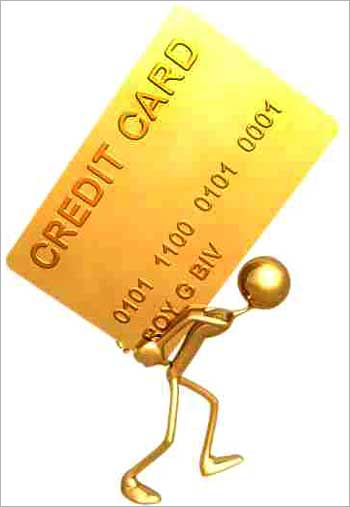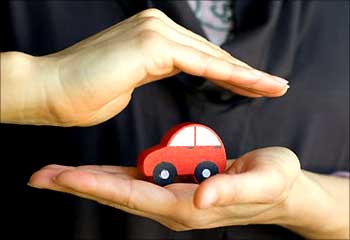 | « Back to article | Print this article |
Car loan default: What, when and how?
At a time when the economies around the world are facing unprecedented unemployment percentages, grim job prospects, and high inflation rates, individuals who once had great credit and made payment of bills on time now face the fear of defaulting on their loans.
Probably the next big thing on your monthly budgets after the mortgage loan is the car loan. And you would not want to default on this for obvious reasons. One, it will destroy your credit history and two you might lose your car to the repossession man!
But when does a default actually happen? Does making a deferred or skipping the payment for a month or so constitute a default? Will your car be repossessed then?
When does a default happen?
Technically, a car loan default happens when a customer repeatedly fails to make the agreed car loan payments to the lender/bank that lent the money for its purchase. But is there a prescribed number of payment failure mentioned? Yes.
Usually, the car loan agreement that you signed with your lender/bank will have these terms clearly spelt out. Everything about your car loan, your loan repayment obligations and when you are in default are usually explained here. The agreement may also provide the risks involved and the possible solutions in case of a default.
Though the term 'default' has no universal definition to it and differs from case to case, the general meaning of 'default' is if you are 30, 60 or 90 days late on not making one or more payments. Having said this it is vital to know what you should be doing when you wake up to the fact that you might have big difficulties in making your car loan payment for the month and avoid being tagged a customer at 'default'.
Car loan default: What, when and how?
The problem starts when you fear the inability for the car loan payment start to avoid the lender/bank. Never do this. Most lenders/banks will work with payment issues on a case to case basis. So the moment you see trouble in making your car loan payment, call up your lender/bank and be honest to explain the reason for the delay in payment.
They might have heard the excuse a thousand times before but being straightforward could work in your favor and bring about a mutually beneficial adjusted term.
Apart from this, there are many other options available to you. Don't give up on your car until you try all of these.
Try to talk to your lender/bank to extend your car loan duration. For instance, if you had originally taken a car loan for 36 months you could request it to be extended to 48 months. This will ensure your monthly commitment is reduced.
Ask your lender/bank if he would consider allowing you to make a deferred payment. It means you will be allowed to skip the current month's payment and make it at a later date. Explain to him that having a month's jump on the payment will give you the much needed flexibility.
See if you could convince your lender/bank to change the payment due date permanently.
Car loan default: What, when and how?
What if none of the above options works out?
As said if the payments are not made as said in your agreement it is deemed as default. The obvious fallout of this is the lender/bank might repossess your car.
Depending on your loan agreement, the lender/bank will send you a written notice of default asking you to make the remaining balance on your car loan or face repossession. If the notice is not honored within the time mentioned in it, your car will be repossessed.
What do the banks do with such cars? How do they get their money back?
As said, a repossessed car is often sold at an auction to pay off your default loan amount. The auction details are well advertised and done in a commercially reasonable manner.
Usually, the lender/bank informs you or the customer at default about the place and timing of the auction so that if you want to bid or just see how the auction goes you can do so.
Car loan default: What, when and how?
Next, you might face a default judgment. A default is the difference between the value of the car at the time the lender/bank sells it and the actual outstanding loan balance that you owe on the car loan. For instance, if you owe Rs 4,00,000 to the lender/bank at the time of repossessing but the car only sells for Rs 3,00,000, you will have to pay the difference of Rs 1,00,000 to the lender/bank. If not, the lender/bank could move the court to claim it.
On the flip side if the car is sold off at a higher price than the money owed by you to the lender/bank, you will be reimbursed with the surplus amount.Car loan default: What, when and how?
Certainly! Repossessed cars are often sold at a discount price for obvious reasons, mostly because it is technically not a new car and up for only a resale.
Repossessed cars are sold at auction which is advertised. So if you are interested in buying repossessed cars then you can refer to these adverts or also call auction houses or local lenders/banks that repossess cars or local used car dealers. In some cases you can buy the repossessed cars online as some small lenders do it online.
All information including the preferred payment mode, the correct form to be filled etc are usually available in the adverts or the lenders/banks, auction houses or local used car dealers or at the place where the auction takes place.
It is advisable to examine the repossessed car before buying it. You can take the help of someone like a car expert for this. It is also better to look at the vehicle history report, if it is available. A thorough check of the car interiors for defects and if possible taking a test drive will go a long way in ensuring that you buy a car in good condition.
Powered by
BankBazaar.com is an online marketplace where you can instantly get loan rate quotes, compare and apply online for your personal loan, home loan and credit card needs from India's leading banks and NBFCs.
Copyright 2025 www.BankBazaar.com. All rights reserved.




